Search
Remove Ads
Advertisement
Search Results
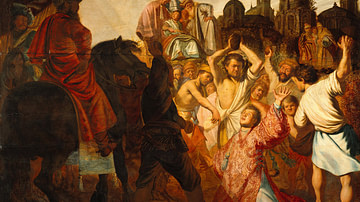
Image
The Stoning of Saint Stephen
The lapidation of Saint Stephen, oil on wood by Rembrandt, 1625.
Museum of Fine Arts of Lyon.
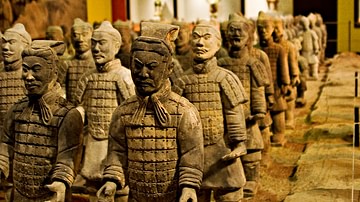
Definition
Terracotta Army
The Terracotta Army refers to the thousands of life-size clay models of soldiers, horses, and chariots which were deposited around the grand mausoleum of Shi Huangdi, first emperor of China and founder of the Qin dynasty, located near Lishan...
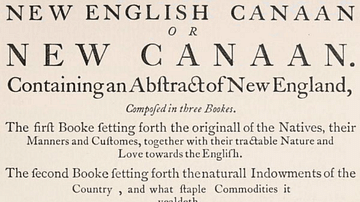
Definition
New English Canaan
New English Canaan is a three-volume work of history, natural history, satire, and poetry by the lawyer and New England colonist Thomas Morton (l. c. 1579-1647 CE) published in 1637 CE. The book developed out of legal briefs Morton prepared...

Definition
Carthaginian Army
The armies of Carthage permitted the city to forge the most powerful empire in the western Mediterranean from the 6th to 3rd centuries BCE. Although by tradition a seafaring nation with a powerful navy, Carthage, by necessity, had to employ...
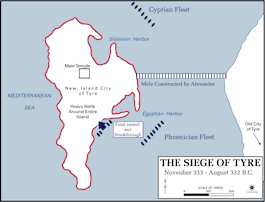
Article
Alexander's Siege of Tyre, 332 BCE
After defeating Darius III at the battle of Issus in November 333 BCE, Alexander marched his army (about 35,000-40,000 strong) into Phoenicia, where he received the capitulation of Byblus and Sidon. Tyrian envoys met with Alexander whilst...

Article
The Red Army in WWII
The Red Army of the USSR began the Second World War (1939-45) with a series of shocking defeats, but from late 1942, it rallied and held on to key cities like the capital Moscow, Leningrad (Saint Petersburg), and Stalingrad (Volgograd). Then...
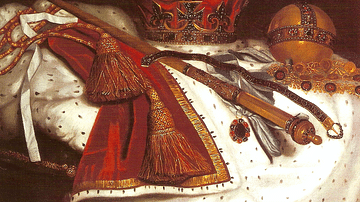
Article
Causes of the English Civil Wars
The English Civil Wars (1642-1651) were caused by a monumental clash of ideas between King Charles I of England (r. 1625-1649) and his parliament. Arguments over the powers of the monarchy, finances, questions of religious practices and toleration...

Video
Jamestown Vs Plymouth 2 : "American Stephano...The Saga of Stephen Hopkins"
The saga of Stephen Hopkins, who survived a shipwreck in Bermuda, several years in Jamestown, and returned to America on the Mayflower.
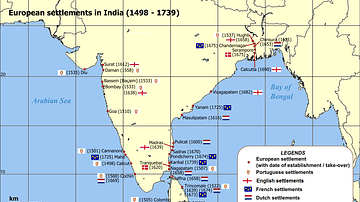
Article
The English and Dutch East India Companies' Invasions of India
In the early 17th century, the Dutch and English East India Companies turned their eyes towards India, as part of their grand schemes to develop extensive trade networks across the Indian and China Seas. They were faced with two significant...
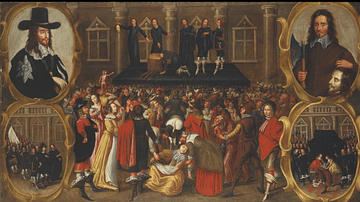
Article
Consequences of the English Civil Wars
The impact and consequences of the English Civil Wars (1642-1651) were many and far-reaching. Charles I of England (r. 1625-1649) was executed, and the monarchy was abolished. Oliver Cromwell (1599-1658) then headed the Republic as the Lord...